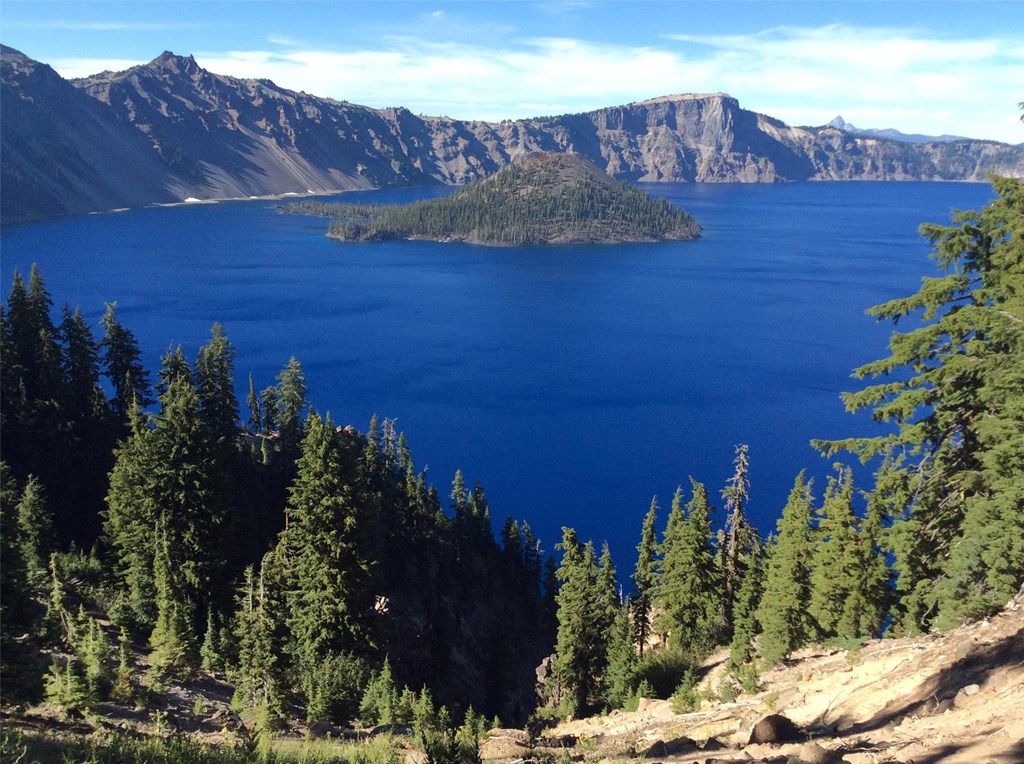Crater Lake
Posted on in Todd Talks by Todd Johnson
Around 7,700 years ago, a volcanic eruption in the Cascades created a 2,148-foot-deep caldera in an area that would eventually become part of Oregon. This caldera had steep sides which funneled rainfall and snowmelt into the depression, eventually filling the void with what we now call Crater Lake.
This lake is remote and stunning. Known for its clarity, and deep blue color, due to the absence of pollutants and tributaries, water clarity is regularly measured at around 120 feet. In 1997 the clarity depth was measured at 142 feet! The maximum depth of the lake is a stunning 1,949 feet, making it the deepest lake in the United States and the 10th deepest in the world.
I distinctly remember first seeing a picture of the lake on a calendar as a child and thinking that I wanted to go there one day. My work travels would eventually lead me to Oregon, and I even saw signs for Crater Lake, but I have yet to visit the lake.
The lake has quite a few interesting features. There is a large island named Wizard Island due to its resemblance to a wizard’s hat. This island is actually a cinder cone, which is made up of small volcanic rocks that have formed and fallen into the cone shape around a vent. There are no native fish, but the lake was stocked with several species of fish long ago. Only two species survive today, the kokanee salmon and the rainbow trout. Swimming is allowed in one area of the lake. The steep sides of the caldera make swimming in most areas of the lake unsafe. There is also “The Old Man of the Lake,” which is an old tree that has been bobbing vertically around the lake for over a century. The cold water of the lake is thought to have slowed the decay of the log, leading to its longevity. Finally, there is an aquatic moss that grows in the lake. It’s so thick in some areas that there are caves in the moss that can be explored by divers.
Have you been to Crater Lake? I would love to hear about your experience or see your pictures. Feel free to send them to me at [email protected].
